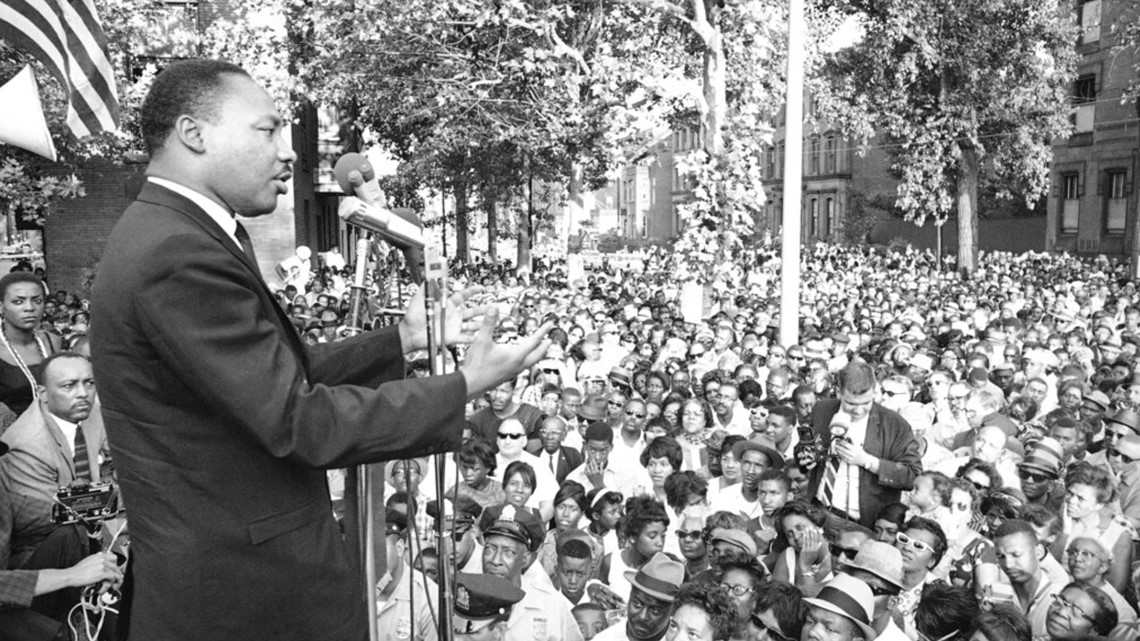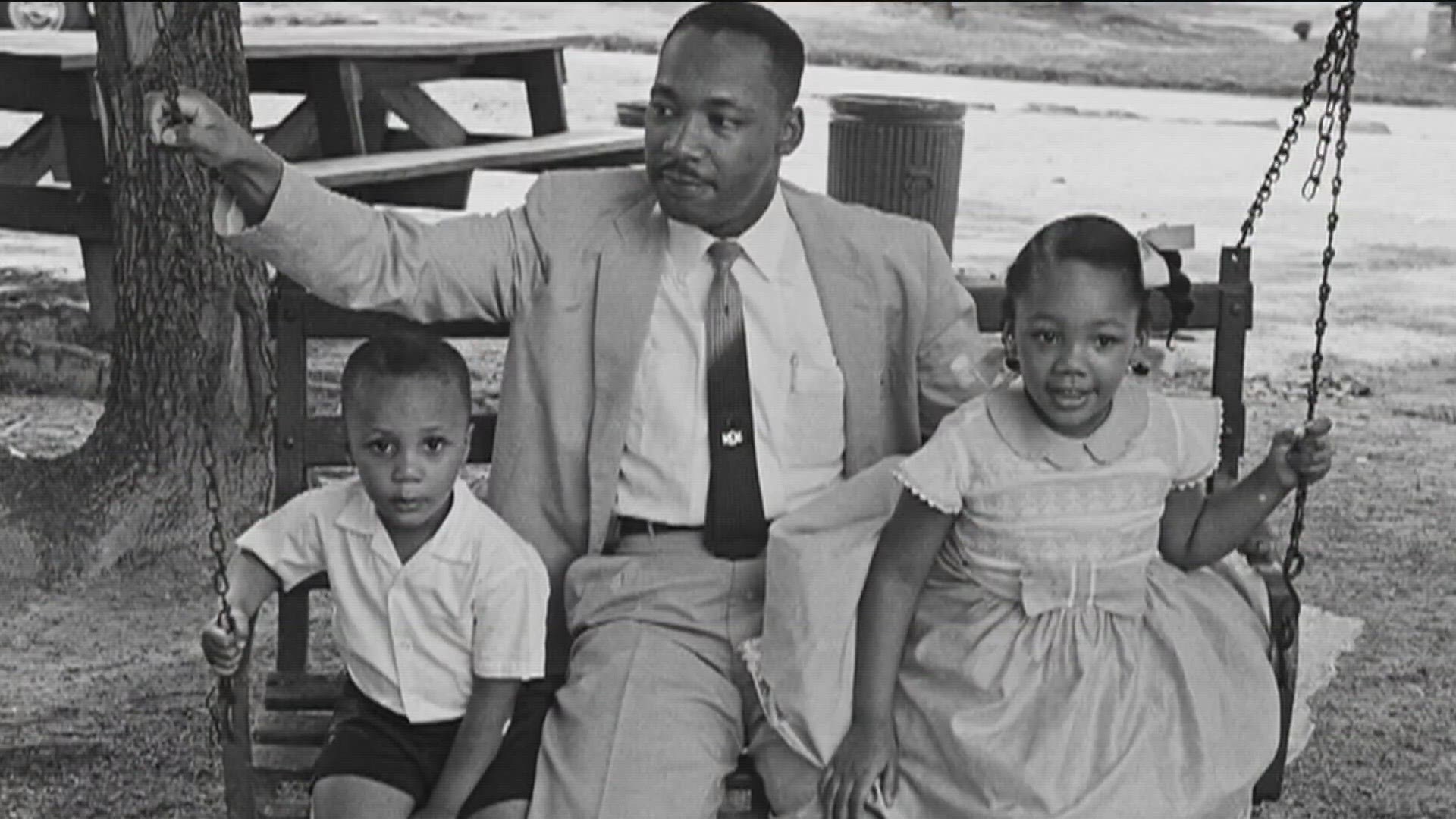ATLANTA — Civil rights leader Martin Luther King Jr. was shot and killed on April 4, 1968 -- Thursday marks 56 years.
To honor the late hero, a wreath-laying ceremony was held Thursday morning at the King Center Freedom Plaza on Auburn Avenue.
You can re-watch the full ceremony below:
King was standing on the balcony of the Lorraine Motel in Memphis, Tennessee, when he was shot; his slaying was followed by a wave of rioting (Washington, D.C., Baltimore, and Chicago were among the cities particularly hard hit).
James Earl Ray later pleaded guilty to assassinating King, then spent the rest of his life claiming he’d been the victim of a setup. To this day, King's death has continued to come under scrutiny, particularly with allegations the U.S. Federal Bureau of Investigation (FBI) had a hand in the killing.
A book named Who Killed Martin Luther King?: The True Story by the Alleged Assassin, by Jesse Jackson, expanded on that theory, according to the Britannica encyclopedia.
"It is perhaps not surprising that the King family and King intimates would accept a conspiracy theory grounded in government involvement, given the White House-approved sometimes tawdry efforts by J. Edgar Hoover and the FBI to attack King’s character and reputation as they ostensibly sought to connect him with the Communist Party," the Britannica said.
The FBI's surveillance and harassment of King in the 60s is well-documented, but the U.S. Department of Justice maintains no federal agency played a role in his assassination.
The DOJ opened two investigations into claims that emerged in the 90s and ultimately announced their findings were "consistent with the conclusions reached by prior official investigations," quoting a 1977 DOJ Task Force that found "no evidence of the complicity of the Memphis Police Department or the FBI" in the killing of King.
The King family challenged the report, stating: "We do not believe that, in such a politically sensitive matter, the government is capable of investigating itself."


More on King:
Dr. Martin Luther King Jr. was pivotal in the American Civil Rights Movement during the 1950s and 1960s. As a Baptist minister and activist, he advocated for nonviolent protest and civil disobedience to advance civil rights for African Americans. His philosophy was deeply rooted in the principles of love, equality, and justice.
King's influence extended far beyond his lifetime, shaping the course of history and inspiring countless individuals worldwide. Through his powerful speeches, such as the iconic "I Have a Dream" address, he galvanized support for desegregation, voting rights, and economic equality. His leadership played a crucial role in landmark achievements like the Civil Rights Act of 1964 and the Voting Rights Act of 1965.
King's commitment to peaceful resistance and his unwavering dedication to justice continue to resonate today.

